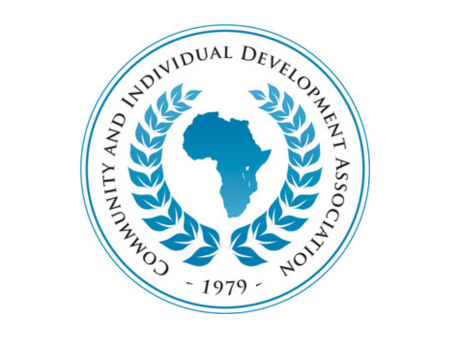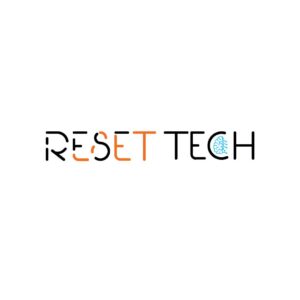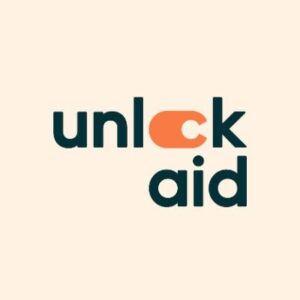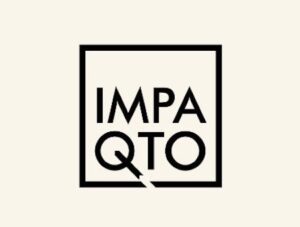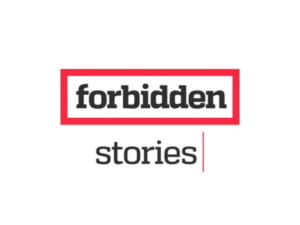Community and Individual Development Association (CIDA) has helped to create free access to six institutions of higher learning with the goal of unemployed youth rising out of poverty. The Maharishi Invincibility Institute is working to create the first ultra-low-cost chain of college education accessible to all.
Adam (Taddy) Blecher of CIDA spoke with Divya Manocha on February 29, 2024. Click here to read the full conversation with insights highlighted.
Divya Manocha: Could you please introduce yourself, describe the problems that CIDA [Community and Individual Development Association] and Maharishi Invincibility Institute are addressing, and how you’re responding to these problems?
Taddy Blecher: My name is Dr. Taddy Blecher. I’m the CEO and co-founder of the Maharishi Invincibility Institute and the CEO of the Community and Individual Development Association, which is our mother nonprofit. We are passionate about the issue of education for employment, particularly high-quality employment and entrepreneurship, to break the cycle of poverty for families and provide education in a way that is far more human and relevant in a world where technology is growing so quickly we’ve got a technological revolution. Our approach is to create a human evolution that goes alongside the technological revolution. Technology and AI will disrupt every industry. They will disrupt education itself, and the need for human beings to become more human, more refined, more intelligent, more creative, more loving, and better leaders has never been greater.
We see the tremendous problems in the world: the wars and terrorism and suffering and poverty and the refugee crisis and everything else. This all comes from an old-fashioned type of education, which isn’t developing whole human beings and enlightened people who can find creative solutions that take the world forward. Of course, that’s what social innovators and social entrepreneurs work on.
What we have done in South Africa is started what you could call the free higher education movement so everybody can have access to higher education, be it university education, college education, professional education, vocational education, or occupational education. Then, people can get good-quality jobs. [We started and are based in South Africa], and we’re currently in 13 locations across five countries, building everything from universities to high schools to preschools. We focus generally on helping more marginalized people gain access to education. Our passion is helping people to first gain access to education and then gain access to high-quality employment to break that cycle of poverty. That is the one major focus of the organization.
The other aspect of what we are doing is helping to improve the South African education system as a whole. We have a national initiative called E3 [Education Entrepreneurship Employability], and we started an organization out of CIDA called CIDA E3, which is working to transform South Africa’s education system to be more relevant to the 21st century and modernize an increasingly difficult economic landscape. We work very closely with the Department of Basic Education, and we’ve got a number of staff working on the national initiative as well.
We really work both at a macro level and at a micro level. We work at a national level, on a systems-change basis, which will impact millions of people, but then we also work on a micro level to create best practices for how to innovate in education at the higher education level, the school level, the preschool level, and so on. We are known as an innovator in education. We’ve won 35 awards, of which 13 are global awards. We were chosen by Stanford as one of the 12 most innovative education institutions in the world in something called Reimagining Higher Education.
Divya Manocha: That speaks to my next question, which is, what makes your approach distinctive?
Taddy Blecher: I think education in general needs to be completely reinvented because the old British system of education, which is in India as well, is hundreds of years old. It was good for developing people to work in a factory, or to be yes sir, no sir, humble, obedient servants, but its time has passed. It’s very partial, and it’s not helping human beings create the kind of world that’s going to be sustainable and stable for the future, for dealing with all the crises we’re dealing with at a global level, whether it’s climate change or any of the other things I mentioned. Education has to be reinvented. At the core of that, I believe the final educational revolution is going to be on how to develop the full human potential. Traditional education is like the British system, and is very content-based—you get books, you pass your exams, you get a piece of paper, you try to get a job with that piece of paper.
But content has gone free. It is so commoditized. You can read any of it on the internet, Google it in one second. AI knows it all, so education has moved from content to skills. Skills are very important. You’re a journalist, you have to have journalism skills. Can you write well? Can you synthesize information? Can you draw insights and conclusions? Those are skills. How do you write software? How do you do an Excel spreadsheet, draw up a budget, things like that, but even that is not sufficient anymore. Now the big educational think tanks talk about metacognition and meta-learning, like higher-order thinking skills, negotiation skills, and emotional intelligence. We go even beyond that and talk about mastery. We talk about enlightenment, and where a human being is enlightened versus where a person is using their full potential.
A human being is not just an intellect. That means that we have to develop mind, body, and soul, to have healthy bodies, fit bodies, healthy emotions, and emotional well-being. We know there’s a huge growth of mental health problems in the world: depression, all kinds of mental disorders, even in the best universities and schools in the world. People need to be emotionally well and stable for all these qualities—from meta-learning and metacognition, to leadership, to passion, to creativity—to thrive. Creativity is an essential human trait and it’s not developed systematically in education. Stability, self-reliance, internal locus of control, field independence—all these qualities that have to be developed are higher-order qualities. This is where education has to go because AI, whether it’s robots or humanoids, will disrupt everything. It will drive our cars and make our food. It is far more important that we train human beings to be human, and not like robots.
Divya Manocha: How are you ensuring that humans evolve as technology does, and that they don’t get left behind?
Taddy Blecher: Beautiful question. Think of the two main types of learning in the world today as being either contact education or distance education. Contact education is your traditional ivory towers, your Harvards and Stanfords, Oxfords and Cambridges. Then you have your pure distance education, the idea of MOOCs [massive open online courses] and things like that, where anybody can gain access to any knowledge online for free, or at very low cost, and moving to things like microcredentialing and nanocredentialing. The first model I would call very much genius in, genius out. Traditional universities take something like .1% to 1% of society. Even in India, if you think of the IITs [Indian Institutes of Technology], and how hard it is to get into the top universities, the top tech schools, and places like that, you see they take the most brilliant people in and send the most brilliant people out, but they don’t know how to take average people and turn them into brilliant. A big part of our model is: How do you do that?
Firstly, you’ve got to create pure access. Access is partly through technology access, but it’s also financial access because people don’t have the finances to get into these very expensive programs. Then they need all the coping and support skills. We would call it providing access financially and educationally, and then providing wraparound services. If a person’s getting an education, but they’re also starving to death, then they can’t study because they’re hungry, and they have to fill their stomach. If they’re in such a difficult emotional state that they can’t listen and concentrate, then you have to deal with those kinds of issues. That’s on the contact side.
Then, there is education that is made accessible through distance learning. On the one hand, it’s great that technology can reach all these people. If somebody has access to a cell phone, if they’ve got access to a computer, they could theoretically obtain any knowledge in the world from the best universities, but the challenge is, again, they don’t have the bridging. They don’t have the language skills, the numeracy skills, whatever it is, so you’ve got to bridge those gaps. Plus, they may not have the wraparound support that they need, or the ability to take that knowledge and make it useful so they can get a job and can keep a job. If you just give people access to a free online course, about 90% end up dropping out and not making it through. Then of those that complete it, not all can apply that knowledge and use it in the real world.
We’ve got what we call a third approach, which is a human interface to technology-enabled learning. Technology can distribute all of this content, so we can have universities or schools anywhere, and we can take the content and the methodologies on how to learn skills and content anywhere very easily. Now, we want to create a human interface to that. We use an approach that we call consciousness-based education. It’s an approach that puts the human being first, and it says that a human being has consciousness at their deepest level, and we want to develop that consciousness. We do that through, for example, meditation and yoga. We’ve got about 30 courses that all students in all fields go through, that are all about leadership, life skills, creativity, values, morality, diet, nutrition, sleep, and routines. They’re about how to be a healthy person and how to develop your consciousness.
Then for the body, we have all kinds of programs to help students be healthy in their bodies and feed their bodies healthy food. We always provide fresh, nutritious food on all of our campuses and in all of our schools. In terms of emotional health, we have a number of programs to help our students develop their emotional health and well-being so that everybody learns to love themselves. We also think of the mind beyond just the intellect. A person needs to know, why am I here? Who am I? What is my life purpose? We call it flipping Maslow’s hierarchy on its head. Instead of starting off focusing only on how to have a roof over your head and food to eat, we address how you find your life purpose and think about self-actualization.
All of our programs lead towards that, and we spend a couple of hours every single day with our students. If a student’s with us for four years, we will spend so much time with them, helping them find their life purpose, their direction, what they really want to do, developing their skills and talents, and then really developing their intelligence, creativity, and memory. This is a game-changer in education. By dealing with the whole person, we’re able to take people, 98% of whom couldn’t get into a traditional university, and achieve very high success rates. In South Africa, a country with the highest unemployment levels in the world for youth between the ages of 18 to 24—we have anything between a 61% and 74% youth unemployment rate—our students have a 95% employment rate, and 90% of our graduates end up getting permanent employment because employers love them.
When they’re entrepreneurs, they’re successful entrepreneurs because they know how to work with other people. They know how to come up with new ideas, to test ideas, and to use technology. They have empathy, they can work well with other people, and they have good learning skills, so they can learn very quickly. They can think for themselves and solve problems. We do it through an experiential approach of building into the curriculum that students every day work on developing themselves, their consciousness, their health, and their wellbeing. We do that through both physical meditation and things like that, but also through courses on developing those qualities of humanness.
Divya Manocha: I’m curious about how you measure success when you talk about qualities like humanness. How do you put a number to that, if at all?
Taddy Blecher: Some things are easy to measure, standard things like test scores, how a person grows in their grades or their attendance. For example, if somebody doesn’t enjoy learning, and they don’t feel that this has a future for them, then they’re going to drop out. But if we’ve got very high attendance rates, and students are staying in the education system, then we know this education’s very valuable to them. Our students are generally people who’ve been failing school, dropping out of school, or getting the lowest marks at school. People who are getting 40% in mathematics, 30% in science, 17% in language skills. If we can get that student from, say, 17% to 50% to 80% to 90% to 95%, it means that the student is now able to concentrate and learn in a way that they were unable to learn before because they had barriers to learning.
Then we also test things like what percentage get a job, and what percentage get converted from an internship to a permanent job? Are they able to be employed for the long term for their whole career? That’s a very traditional and very important metric for us. We’ve got a lot of traditional metrics, but then we have non-traditional metrics where we test our students on a global test of depression, for example, called the Beck depression inventory. Then we’ll check if somebody who’s chronically depressed is able to become non-depressed. We’re testing if this person’s depression is gone. We’re testing post-traumatic stress disorder with something called the PCL test, which is a globally recognized test for post-traumatic stress disorder.
We’ve got a battery of tests for things like stress levels, anxiety, and depression, which are recognizable and used in various parts of the world. We also use something called a block system where every month, students start a new course and then twice a month, they evaluate the course. We ask them subjective questions about happiness, well-being, how their lives are going, and things like that. Then we can track how that’s going over time through a student’s subjective rating on these various metrics. These are the different ways we test objectively and subjectively if our students are making progress.
Divya Manocha: What advice would you give to someone who wants to replicate what you’ve done?
Taddy Blecher: The advice we would give is that it’s possible to help marginalized people become super successful in the economy. We have 21,000 students who were unemployed and excluded from education, who we’ve now got into really top jobs across the economy. We estimate those individuals will earn 59 billion rand, which is like 3 billion dollars. These people are now very successful senior people in companies across the economy and in government. The first thing we tell people is that this is possible, and that our traditional paradigms around education that dictate you can only take that 0.1% and achieve success for that 0.1% are completely flawed. Every human being is a genius waiting to happen, and every human being has a major contribution that they can make to the world. If you unlock that potential, that individual can achieve way more than what society has given them credit for.
Then we work with a variety of organizations so we can provide methodologies, content, systems, and processes to help them on this journey. We’ve helped various organizations do this type of thing in various parts of the world. It starts with knowing it’s possible, and then it’s about unpacking the innovations, the components of it, the financing methods, the curriculum, the systems, the technology, the processes, the accreditations, all that type of thing.
Divya Manocha: Could you also talk about something you tried that didn’t work so well? What did it teach you?
Taddy Blecher: I think our methodology to develop human potential has been a game changer and it’s always worked. We’ve adopted a system called consciousness-based education, which has worked very well. I think what is hard is figuring out how to finance something like this when you don’t have money from your students. Our students only pay us $11 a month, and with that, they get all their food, all their books and materials, ten hours of classes, and tuition, and we don’t get any support from the government. I would say our biggest enduring issue has been how to finance an institution with no money from the students because they’re from a marginalized background and no money from the government. Those are your two traditional funding sources, and we’ve had to find ways of bypassing them.
Divya Manocha: Would you say that you are working to advance systems-level change in your field? If yes, how are you doing that?
Taddy Blecher: Definitely. We’re doing that through the E3 initiative I spoke of earlier. It’s a national initiative in South Africa, and we are reaching millions of children across the national school system. We do it together with the Department of Basic Education.
Divya Manocha: What do you think is most needed from other actors or other partners to advance this conceptual change? How can you work with other players to advance this change?
Taddy Blecher: First, I’d say it’s like awakening a sense of possibility because people are so often trapped in a certain box. We all live in so many boxes in our own minds that limit the way we see the world. What an organization like Skoll, and other Skoll entrepreneurs do, is show you that your box is broken and that a lot of things are possible that you never dreamed were possible. The moment you start to realize that, it starts to change your thinking.
The other thing is to teach. We have to always be teaching–through videos, through articles, through classes, formal and informal, through blogs and podcasts, through demonstrations. People have to physically visit things to see them and go, “Wow, that is absolutely mind-blowing. I never believed that was possible.”
It’s an ecosystem. It’s connecting people to others in an ecosystem, so networking is very important. Networking with other social actors, governments, funders, innovators, and universities. People need access to funding, yes, but they need to be able to prove that they can do things even without a lot of funding. I always say you’ve got to help people find their secret sauce, or their true innovation. For us, you’ve got a big organization now in multiple countries, but it all stems around the fact that we’re able to take one individual and change their life. If we cannot change one life, we can’t change 1,000 lives. If you can’t change 100,000 lives, you can’t change a million lives.
You have to have real innovation and you’ve got to protect it. That is your intellectual property. It’s what can change the game. For us, it’s that we can take average people and make them exceptional, which nobody knows how to do. Everybody knows how to take a genius and make them exceptional, but that’s not rocket science. Our innovation is that we can just take that one person and turn them into a genius. If we can do it one time, can we do it 100 times, or 100,000 times? Yes, we can. It’s like making stock for a soup. You’ve got to come down to that absolutely essential ingredient and understand that everything else is just the layers supporting it, the scaffolding–the people, the money, everything else. It’s all about the secret sauce.
If you don’t have it, then you’re just another me-too organization. Then there’s nothing special about what you do. It’s finding that thing. That’s what I always say when I work with social entrepreneurs. I hope to create an organization called Tendril where social entrepreneurs help each other find that secret sauce. Once you’ve got that, then how do you build on that?
Divya Manocha: You mentioned that it’s possible to make an impact without too much funding. How did you navigate issues that came up with a lack of funding?
Taddy Blecher: You have to be very creative. In the beginning, you have to beg, borrow, and steal. You find a way through innovation. We found ways to leverage a lot of wastage. There’s a lot of wastage in society. How can that be used? Then there are resources that are infinite. If you can show people why they should give you access to that infinite resource, it costs them nothing. An example of that is software. If you could convince Microsoft that their software is infinite, or Google that their software is infinite, and that they should give it to you for free, then you can show them all the benefits to them. It starts with a desire for shared value. You have to take this approach that if people are going to help you, you must help them back. Even if you’ve got very little in the beginning, you’ve still got something to give. If you can find a way to give something, people feel better giving to you. Then as your muscles grow as an organization, you’ve got more and more to give, and the more you give, the more you can get.
You have to have an impact. You have to prove that impact. In the beginning, it’s very hard because you don’t have any impact to show. In our case, we said we can take these unemployed people, excluded from society, and turn them into these super successful people. That takes time. Once you’ve got a big impact, then it becomes much easier to get more people to support you, but in the beginning, you don’t. How do you build something without money, without impact, and so on? You just have to start. You have to start small. You have to find a way. There are always ways. There is no problem that cannot be solved. That’s what I’ve learned. Every single problem has got a solution. We just have to find the solution. It is hard. You will be afraid, but you have to do it anyway.
Divya Manocha: How do you see your work evolving over the next five years?
Taddy Blecher: We want to change the world. We want to change our country. We hope to expand into, say, at least ten countries in Africa over the next five to ten years. We want to bring systems change, and we want to transform our country. We want less crime, less violence, less poverty, more employment, more prosperity, more stable government, and growth in the economy. Ultimately, our way of doing that is through raising consciousness. Firstly, through developing leaders. Leaders bring light, change, and vision. Then, through transforming our school system, and making education, entrepreneurship, and jobs accessible to everybody.
Divya Manocha: If you were to give people some pointers to take back to their work and use to increase the impact that they’re making, what would those be?
Taddy Blecher: Firstly, anything is possible. Challenge yourself every moment of every day. Never give up. Love yourself and the people you work with because you will have hard times. Always see where you’re going, and have a vision of where you’re going. Pick something great to do and do it. Don’t just pick something that you can do; pick something that is a stretch beyond what you believe you can do. Go for something truly great, that can change the world, change the community, change the status quo, and then be field independent. Field independent means you operate in the field, but you’re still outside of the field, so you don’t get overwhelmed by it. Learn every day and think independently. Don’t get caught up in the noise and the hype. Think for yourself, test ideas, and then find your secret sauce.
Find your thing that is going to change the game. It’s all about impact. You’ve got to be able to measure impact, replicate impact, and scale impact. Impact’s got to be not just for one gender. You’ve got to think of gender equality and openness to all. You’ve got to know that you’re actually making a difference. Then it’s all about scaling that difference and helping as many people as possible to change the status quo. It’s possible. It’s fun, it’s exciting, it’s hard. You will cry. You will often want to give up, but just hold onto it as if you’re holding onto a horse’s hooves that are galloping at high speed and you’re being dragged on the ground. That is the joy of being a social entrepreneur.
Divya Manocha: That’s a wonderful analogy. Thank you so much for your time. All the best with your work. It’s inspiring.
Click here to read the full conversation with insights highlighted.
Divya Manocha has been a LEDE Fellow with the Solutions Journalism Network and is the founder of SoJourn, a bootcamp that brings together university students from around the world to produce solutions journalism. SoJourn has led to the publication of several stories which now feature on the Solutions Story Tracker alongside the work of Pulitzer Prize-winning journalists. Divya’s current work focuses on making assistive technology more accessible and using the power of play to drive civic engagement.
* This interview has been edited and condensed.
Read other interviews with social changemakers in South Africa.

